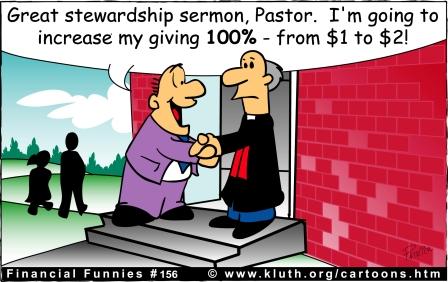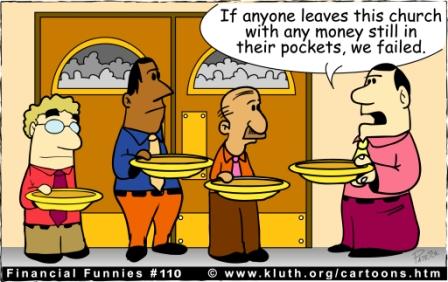Dear pastors and ministry leaders:

My father was an apple grower. One of his personal pleasures was loading up the pickup truck at the end of the harvest season to take apples to the widows and elderly around the area. He gained great joy from distributing free apples and was reluctant to stop. It’s a sad irony that he sustained a debilitating injury by falling from a ladder while picking apples to take to the shut-ins. He spent the last six years of his life in a nursing home as a paraplegic. One of his regrets was his inability to keep providing apples and service to others.

My father was a great mentor as he taught my brothers and me much about generosity and generous living. I strive to be the same good mentor for my three sons. Have you stopped to consider who are the examples and mentors in your life? What are some of the practices of faith and giving you recall from childhood? What is the most meaningful gift you have ever received, and what did it teach you about generosity? How has generosity impacted you and shaped your life? (These are great questions for personal reflection, and also to ask in conversations with donors who support your church.)
According to Jesus, he “came to give life—life in all its fullness” (John 10:10 NCV). It is out of this abundance “in Christ” that we live and share with others. Often in our preaching about “stewardship” we talk about personal responsibility in how we manage our time, talent and treasure. Personally I think that stewardship teaching needs to be expanded to address living out of the fullness of our abundant life in Jesus. My challenge to us all is that we would live generously and preach generosity.
Jesus knows where our heart is by what we treasure (Matthew 6:21), and what we treasure extends beyond our money—we also treasure our time, talents, and relationships. Generosity, then, involves every facet and phase of our lives. According to Christian Smith (of Notre Dame University), generosity is measured in the following ways:
- Financial Giving
- Volunteering
- Relational generosity which involves nurturing social networks by engaging with people (and I include in this making key introductions)
- Neighborly generosity—showing care, extending hospitality, assisting with chores, etc.
- Self-evaluated generosity: Do you see yourself as generous?

As you preach, I urge you to keep in mind that generosity is an underlying theme that fits in almost every sermon (see an example in the sermon summary in this issue from Ted Johnston). Please don’t limit your preaching and teaching to an annual stewardship/giving sermon. As you prepare sermons in the weeks ahead, make it a practice to ask yourself “How and where does the theme of generous living show up in this Bible passage?” Then ask “How will I weave generous living into my sermon delivery?”
John Wesley boiled fiscal responsibility down to three rules that in our vernacular can be stated this way: Earn all you can. Save all you can. Give all you can. Sounds simple, right? Simple, yes, but not easy, especially in today’s culture of consumerism. Wesley’s earn-save-give philosophy of money management will give everyone in your congregation (children, teens and adults of all ages) a new way to think about money for the rest of their lives.
There are many resources available to help your members, and to help you in your personal finances. Some have used teaching tools from Dave Ramsey. Others have had multi-generational small groups where older members talk about living on fixed incomes, middle-age members talk about preparation for retirement, and younger couples talk about their dream to purchase their first house. Talking about a Christian’s view of financial management, coupled with the focus on generous living at all stages of a person’s life, makes for dynamic small group meetings (this could be a very practical way of jump-starting a multi-generational small group and then come to discover that you are actually practicing generous living).
May we continually look to and rely on our generous God who gives us everything. And may we respond to him with generous use of our time, treasure and talent. In other words, may we live generous lives.
In his service,
Greg Williams, director Church Administration and Development
PS: In this letter and scattered throughout this issue of Equipper, we reproduced some cartoons on the topic of stewardship and money. Sometimes some humor is the “sugar” that “helps the medicine go down.” Please understand that all these are offered “tongue in cheek.”




